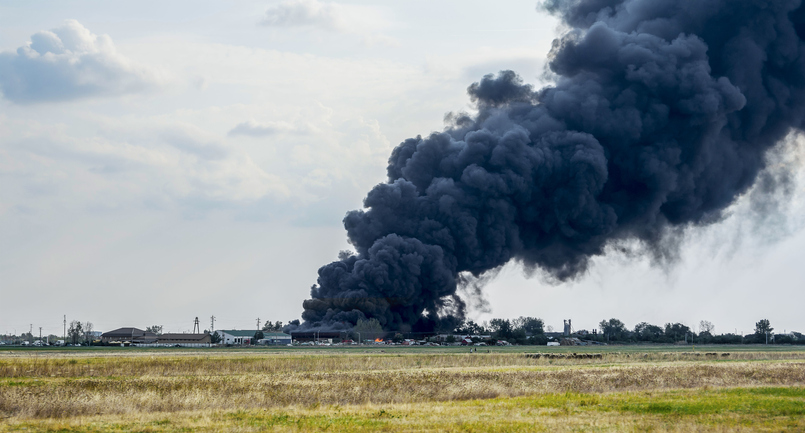
As refinery explosions continue to endanger communities across the country, the U.S. Environmental Protection Agency (EPA) faces renewed pressure to regulate hydrofluoric acid.
EPA Last Studied Hydrofluoric Acid in 1993
Roughly half of the nation’s refineries still use hydrofluoric acid (also known as hydrogen fluoride) to boost octane levels in gasoline, even though the highly toxic compound causes serious injury, and even death, at a concentration of just 30 parts per million.
In 1990, Congress ordered the EPA to study the human health and environmental risks associated with hydrofluoric acid. The agency delivered its report in 1993, concluding that an accidental release could travel great distances as a dense vapor or aerosol cloud, possibly endangering the public and resulting in severe consequences.
Yet the EPA did not propose any action to mitigate these risks, and instead asserted that existing regulations “provide a solid framework for the prevention of accidental chemical releases and preparedness in the event that they occur.”
3 Refinery Explosions Involved Hydrofluoric Acid Since 2015
The U.S. Chemical Safety Board initially asked the EPA to revisit the hydrofluoric acid study in April, just days before the one-year anniversary of the Husky Energy refinery explosion in Superior, Wisconsin. That blast occurred only 150 feet from a tank filled with hydrofluoric acid and forced the evacuation of nearly all 27,000 people living in the community.
In February 2015, an explosion at the former ExxonMobil Refinery in Torrance, California, hurled a 40-ton piece of equipment within five feet of two hydrofluoric acid tanks. The ExxonMobil disaster also occurred in a densely populated community, where three schools and hundreds of homes sat within just a mile of the facility.
The Chemical Safety Board was stilling waiting for a response from the EPA, when a series of explosions rocked the Philadelphia Energy Solutions refinery in Pennsylvania, the largest in the Northeast, on June 21st. The disaster began before dawn and eventually destroyed the 149-year-old facility’s hydrogen fluoride alkylation unit.
Although there were no injuries, the explosions terrorized the citizens of Philadelphia, including more than 30,000 people living within three miles of the plant. A release from the refinery’s massive stockpile of hydrofluoric acid could have imperiled their lives.
Chemical Safety Board Plans to Ramp Up Pressure on EPA
The third near-miss was apparently too much for the U.S. Chemical Safety Board.
“We’ve now seen three incidents — major, catastrophic process safety incidents at refineries that use HF for alkylation in four years,” Interim Director Kristen Kulinowski recently told Wisconsin Public Radio. “So, I would say that there is a sense of urgency around the issue of exploring the safety issues related to the use of HF.”
Kulinowski indicated the Board would be contacting the EPA in the very near future to reiterate the need for a new hydrogen fluoride review.
Environmentalists have also begun to put pressure on the agency. Just days after the Philadelphia refinery explosion, Public Employees for Environmental Responsibility (PEER) filed a legal petition asking the EPA to prohibit the use of hydrofluoric acid in refining and to require its phase-out within two years.
“[S]uch regulations are necessary to ensure that the highly toxic substance is no longer used in oil refineries, given its inherently dangerous nature, the occurrence of ‘near miss’ accidents, the availability of safer alternatives, and the potential for terrorist attacks targeting chemical plants,” PEER wrote.
Contact Our Undefeated Plant Explosion Lawyers for a Free Consult by Calling 1-888-603-3636 or Click Here
Our Undefeated Refinery Explosion Lawyers have won billions, including a recent $100 Million Settlement, for thousands of people injured or tragically killed in connection with the worst plant, refinery, and pipeline explosions in recent history.
Call 1-888-603-3636 or Click Here to send us a confidential email via our “Contact Us” form.
All consultations are free and, as we only represent clients for a contingency fee, you’ll pay nothing unless we win your case.